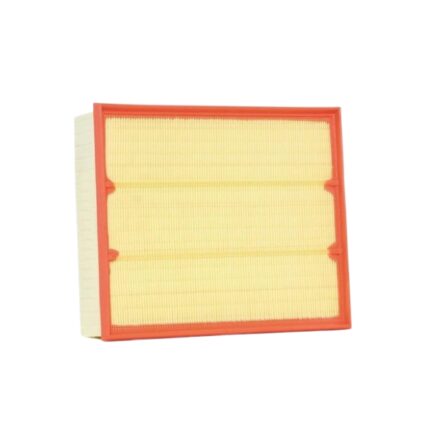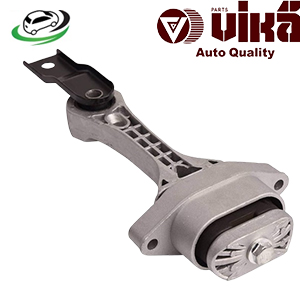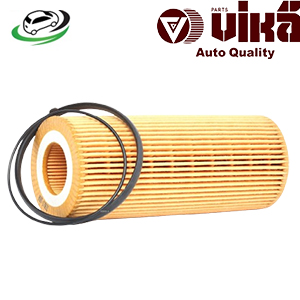Get AUDI A7 3.0T/ B7 A4 V6 3.2L/ B8 A5/ B8 S4/ B8 SQ5/ C6 A6/ D4 A8/ Q5/ Q7 / VW Touareg 3 Oil Filter Kit 06E115562A
An oil filter kit is an essential part of an engine’s lubrication system, ensuring that the engine oil remains clean, free of contaminants, and capable of effectively lubricating engine components. Proper lubrication is vital for reducing friction, cooling engine parts, and preventing wear and tear, all of which help to prolong the engine’s lifespan. This detailed explanation will delve into the various aspects of an oil filter kit, including its functions, components, importance, maintenance tips, and common issues.
Functions of the Oil Filter Kit
- Filtering Contaminants: The primary function of the oil filter is to remove dirt, debris, metal shavings, and other particles from the engine oil. As oil circulates through the engine, it picks up these contaminants, which can cause wear on engine components if left unchecked. The oil filter traps these particles, allowing clean oil to flow back into the engine.
- Protecting Engine Components: Clean oil is crucial for the proper lubrication of engine parts such as pistons, crankshafts, and camshafts. The oil filter ensures that contaminants do not enter these areas, preventing damage and premature wear.
- Maintaining Oil Flow: In addition to cleaning the oil, the oil filter must allow for a consistent flow of oil throughout the engine. A clogged or inefficient filter can restrict oil flow, leading to increased friction, overheating, and potential engine failure.
- Supporting Engine Cooling: Engine oil also helps dissipate heat generated by the engine. By ensuring that clean oil circulates freely, the oil filter contributes to the cooling process and helps prevent engine overheating.
- Improving Engine Efficiency: A clean and properly functioning oil filter helps the engine run more smoothly by reducing friction and wear on moving parts. This leads to better engine performance, improved fuel efficiency, and reduced emissions.
Components of an Oil Filter Kit
An oil filter kit typically includes several key components that work together to maintain oil quality and ensure the engine’s proper lubrication:
- Oil Filter: The main component of the kit is the oil filter itself. Most oil filters use a combination of pleated paper, synthetic fibers, or mesh materials to trap contaminants and allow clean oil to pass through. There are different types of oil filters, including:
- Full-flow filters: These filters process all the oil flowing through the engine.
- Bypass filters: These filters allow a small percentage of oil to bypass the filter, which can be useful in cold starts when oil is thicker.
- Magnetic filters: Some oil filters use magnets to capture metal particles, which may be present in the oil due to engine wear.
- Oil Filter Housing or Cap: In many vehicles, the oil filter is encased in a metal or plastic housing or cap. This part of the kit secures the filter in place and protects it from external damage. In cartridge-style filters, the housing is typically part of the engine, and only the filter element is replaced.
- O-Rings and Gaskets: O-rings and gaskets are included in most oil filter kits to create a tight seal between the filter, the housing, and the engine. This ensures that no oil leaks out during operation. These seals need to be replaced regularly to maintain proper performance.
- Drain Plug or Crush Washer: Some oil filter kits include a replacement drain plug or crush washer for the oil pan. These components help prevent leaks when draining and refilling the oil.
- Instructions and Tools (Optional): Some comprehensive kits may include specific tools or detailed instructions for installation. This can be particularly helpful for DIY enthusiasts or vehicle owners performing their own oil changes.
Importance of the Oil Filter Kit
- Engine Longevity: By keeping engine oil clean, an oil filter kit helps prevent premature wear and damage to critical engine components. Clean oil reduces friction, overheating, and overall stress on the engine, extending its operational life.
- Efficient Lubrication: Clean oil ensures that all moving parts within the engine are properly lubricated. A properly maintained oil filter kit allows for smooth operation and reduces the risk of mechanical failures caused by oil contamination.
- Fuel Efficiency: When the oil filter functions effectively, the engine runs more efficiently due to reduced friction and wear. An engine that operates smoothly requires less energy to function, leading to better fuel economy and lower emissions.
- Cost-Effectiveness: Regularly changing the oil filter and using a complete oil filter kit as part of routine maintenance is a relatively inexpensive way to prevent costly engine repairs. By protecting the engine from contaminants, the oil filter kit helps avoid major mechanical failures that can be expensive to fix.
- Maintaining Oil Pressure: A clogged oil filter can restrict the flow of oil and lead to lower oil pressure, which can cause damage to vital engine components. Replacing the filter regularly ensures that oil pressure remains within optimal levels.
Maintenance of the Oil Filter Kit
- Regular Replacement: The oil filter should be replaced at regular intervals, as specified by the vehicle’s manufacturer. Typically, this is done every 3,000 to 5,000 miles, or during every oil change. However, modern vehicles and synthetic oils may extend the replacement interval to 7,500 to 10,000 miles. Always refer to the owner’s manual for the recommended schedule.
- Check for Leaks: After replacing the oil filter, check the surrounding area for any leaks. Ensure that the O-ring or gasket is properly installed and that the filter is secured tightly to prevent oil leaks.
- Inspect Oil Quality: When changing the filter, it’s a good idea to inspect the oil itself for contaminants or discoloration. Thick, sludgy, or metal-filled oil can indicate larger engine issues that should be addressed promptly.
- Use the Right Filter: Using the correct filter for your specific make and model is crucial. Installing an incorrect or substandard filter can lead to improper oil filtration, oil pressure issues, and potential engine damage.
- Keep Records: Maintain records of when the oil filter was last replaced and when the next change is due. This ensures that the filter is replaced on time and helps track the overall maintenance of the vehicle.
Common Issues with Oil Filter Kits
- Clogged Oil Filter: Over time, oil filters can become clogged with dirt, metal particles, and sludge. A clogged filter restricts oil flow and can cause a drop in oil pressure. This may result in increased engine friction and overheating, leading to potential engine damage.
- Oil Leaks: Incorrect installation of the oil filter, damaged O-rings, or improperly secured filter housings can lead to oil leaks. These leaks can cause low oil levels and result in poor lubrication, overheating, or engine failure.
- Bypass Valve Failure: Some oil filters include a bypass valve that allows oil to flow through the engine even if the filter is clogged. If this valve fails, contaminated oil may circulate, leading to potential engine damage. Additionally, if the valve is stuck open, it may allow unfiltered oil to pass through the engine, defeating the purpose of the filter.
- Filter Material Degradation: Oil filters are made from materials such as paper or synthetic fibers that can degrade over time. If the filter media becomes damaged or degraded, it will not filter the oil effectively, leading to contamination in the engine.
- Wrong Filter Installed: Using an incorrect oil filter can lead to improper filtration or oil pressure issues. It’s crucial to use the correct filter specified by the manufacturer to avoid damaging the engine or voiding the vehicle’s warranty.
Conclusion
An oil filter kit plays a critical role in maintaining the health and performance of an engine by filtering out contaminants and ensuring that clean oil circulates through the system. Its components, including the oil filter, O-rings, and drain plug, work together to protect the engine from harmful particles, improve fuel efficiency, and extend engine life.
Regular maintenance, including timely oil and filter changes, is essential for keeping the engine running smoothly. Understanding the importance of the oil filter kit and addressing common issues like clogs, leaks, and improper installation can help vehicle owners avoid costly repairs and ensure their engines operate at peak efficiency.
By using the right oil filter kit and following proper maintenance practices, vehicle owners can significantly enhance the performance and longevity of their engines, ensuring that their vehicles remain reliable and efficient for many miles to come.
Follow us on Facebook for more parts.




Reviews
Clear filtersThere are no reviews yet.